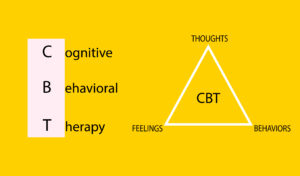CBT for Substance Abuse
Substance abuse can have devastating consequences for those struggling with addiction. Cognitive-behavioral therapy (CBT) is proven to help individuals address underlying issues and change negative behaviors associated with substance abuse. CBT can provide people with the tools to reduce their substance use, gain insight into their behavior, and break free from unhealthy patterns.
If you or a loved one is interested in substance abuse treatment in Wisconsin, Denoon Recovery is here to help. We provide a range of services to help clients overcome addiction and achieve sober living.
Cognitive-behavioral therapy (CBT) is a type of talk therapy that focuses on how our thoughts, beliefs, and attitudes can affect our feelings and actions. CBT helps individuals to recognize distortions in their thinking, which can lead them to feeling anxious or depressed.
Through CBT, an individual learns to identify false or irrational beliefs they may have and replace those with more realistic ones. CBT also allows individuals to learn new skills, such as problem-solving and relaxation techniques, which can help them manage their emotions more effectively and break addictive habits.
The Cognitive Triangle
The cognitive triangle is a model that explains how thoughts, feelings, and behavior are all connected and interact with one another. It states that our thoughts, feelings, and actions are all intertwined and can influence each other in an ongoing cycle.
Our thoughts often lead to feelings, which then lead to actions or behaviors, which can become habits and shape the way we think in the future. Our thoughts can be affected by external factors like environmental cues or the situations we find ourselves in. Likewise, our feelings are usually influenced by our beliefs and expectations as well as our emotions.
For example, if you start thinking negatively about yourself it may lead to feeling down or anxious, which are substance abuse triggers. On the other hand, positive self-talk may lead to feeling more confident and resilient when facing difficult situations. Doing this could lead to more productive behaviors like problem-solving or setting goals.
Understanding the connection between your thoughts, feelings, and actions is an important part of cognitive-behavioral therapy (CBT). By identifying thought processes that trigger these negative responses you can challenge them with more rational responses that will ultimately result in healthier behaviors.
Goals of Cognitive-Behavioral Therapy (CBT)
- Increase self-awareness: Cognitive-behavioral therapy focuses on helping the individual to accurately identify and understand their thoughts, feelings, and behaviors, as well as how these impact their day-to-day life. This can help equip them with the skills needed to better manage their emotions and behaviors.
- Modify thought patterns: This goal emphasizes teaching individuals new ways of thinking that are more balanced and healthy, in contrast to the extreme and irrational thoughts that may lead to or worsen psychological distress. Through techniques such as cognitive restructuring, people can learn to modify their thinking patterns so they are less likely to become overwhelmed by emotion or experience intense mental health issues.
- Develop problem-solving strategies: A key component of cognitive-behavioral therapy is teaching people how to develop effective problem-solving strategies that will enable them to find solutions when faced with difficult problems or situations. Through guided practice, individuals can also learn skills for more effectively managing stressors in their lives.
- Change behavior patterns: Cognitive-behavioral therapy has a strong emphasis on learning new behaviors that can replace old ones which may be detrimental or difficult to change. The therapist works with patients to develop specific behavior goals that will help them achieve desired outcomes and cope better with life’s challenges.
Benefits of CBT for Substance Abuse
Cognitive-behavioral therapy (CBT) is an effective treatment for substance abuse, providing individuals with the tools they need to understand and manage their addiction. The benefits of CBT for substance abuse include
- Increased motivation to reduce or quit substance use
- Improved ability to cope with alcohol or drug cravings
- Improved communication skills which can help improve relationships and reduce social isolation
- Improved problem-solving abilities which can lead to more effective strategies for staying sober and managing stressors in life
- Increased self-awareness and understanding of underlying causes of addiction, allowing for more effective treatment planning
- Reduced risk of future relapse
How Does Cognitive-Behavioral Therapy Work?
Cognitive-behavioral therapy (CBT) is a form of psychotherapy used to help individuals who suffer from addiction. This type of therapy focuses on identifying and changing negative thought patterns and behaviors to help individuals cope with the stresses that come along with addiction.
CBT works by helping individuals understand how their thoughts, beliefs, and behaviors are affecting their behavior. Therapists focus on teaching patients strategies for self-monitoring, problem-solving, and goal-setting. They also work to identify any underlying issues that may be contributing to the individual’s addiction.
Once an individual has identified these underlying issues, they can work on developing healthy coping skills such as healthy distraction techniques, alternative responses to trigger situations, and relapse prevention methods.
The therapist will also help the individual develop a personalized plan for staying sober in the future. CBT helps individuals become proactive in their recovery process by taking personal responsibility for their actions and holding themselves accountable for making changes in their lifestyle choices.
How Does CBT Work as an Addiction Treatment?
CBT is an effective form of addiction treatment because it helps individuals gain insight into what contributes to their addictive behavior as well as how they can change it. It also gives them the tools they need to stay sober long-term while still giving them the support they need throughout recovery.
CBT Techniques For Substance Use Disorders
One way a therapist might use CBT for substance abuse disorders is by helping the individual recognize the thought patterns or emotions that are associated with their substance use. This could include identifying high-risk situations, such as being around people who are using substances or being in an environment where substances are easily accessible.
Once these triggers have been identified, the therapist can then work with the individual on developing alternative responses to those triggers that do not involve using substances. This could include engaging in activities or hobbies to distract oneself from any cravings or engaging in support groups when needed.
Another part of CBT includes addressing unhealthy thinking patterns such as negative self-talk or self-defeating thoughts. The therapist will help the individual examine their thoughts and determine if they are based on accurate information or distorted beliefs. Through this process, individuals can gain insight into how their thoughts influence their behavior and learn new ways of responding without turning toward substances.
CBT also focuses on teaching individuals how to develop new coping skills such as problem-solving strategies, communication skills, and mindfulness meditation that can help them better manage their cravings or stressors. By having these tools in place, it can be much easier for individuals to turn to healthy coping mechanisms instead of drugs or alcohol.
How to Find the Right Facility Specializing in CBT for Substance Abuse
Finding the right facility or therapist specializing in cognitive-behavioral therapy (CBT) can be a daunting task. There are many factors to consider when selecting a CBT provider, such as their qualifications, experience, reputation, cost, and location.
The first step is to do some research. Start by looking up local therapists in your area that specialize in CBT. You can use a variety of resources such as online directories and mental health websites to find qualified therapists who offer CBT. Be sure to read reviews and ratings of each therapist before making a decision. This will help you get an idea of the quality of care they provide.
Once you have identified some possible options, contact them directly and ask questions about their qualifications, experience, and approach to therapy. Be sure to inquire about their fees and payment options as well. It is also important to make sure that the therapist is licensed in your state and certified by a national board for providing CBT treatment.
It’s important to feel comfortable with the therapist you choose. Ask yourself if this person seems knowledgeable, helpful, and caring enough for you to trust with your mental health concerns. Your facility or therapist should be trained in the latest evidence-based techniques used in CBT therapy while also being someone you are comfortable with.
Is CBT For Substance Abuse Covered By Insurance?
CBT for substance abuse is typically covered by insurance. This type of therapy helps individuals to identify and address destructive patterns that contribute to their substance use, as well as develop skills to help them cope with cravings and other challenging situations.
Insurance providers often recognize the value of this evidence-based therapy and will cover it as part of a treatment plan. It is important to check with your provider to determine the exact coverage for CBT.
CBT for Substance Abuse Can Help You or a Loved One Break the Cycle
At Denoon Recovery Center, our team of experienced therapists are highly trained in CBT and can help you or a loved one break the cycle of addiction. We work with each client to identify and address their individual needs. CBT for substance abuse will break behaviors that drive addictive urges and explore healthier coping strategies.
If you or a loved one is looking for healing from addiction, contact us today at Denoon Recovery. We can help you take steps toward long-term recovery today!




